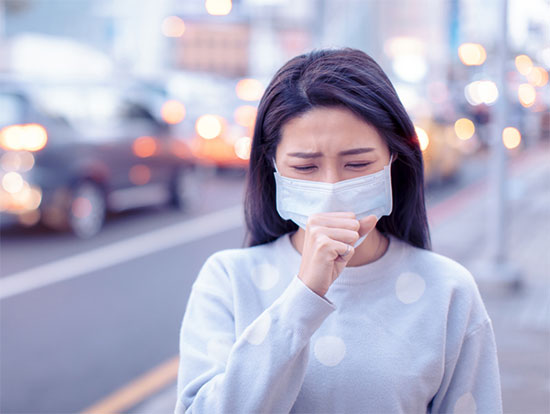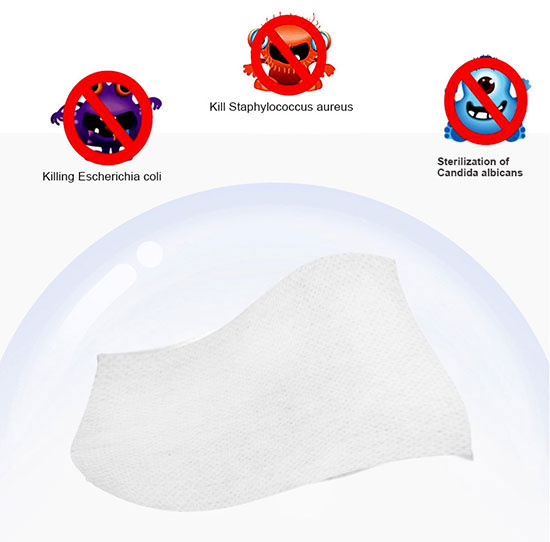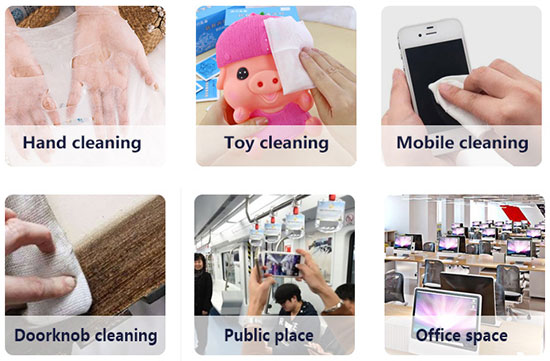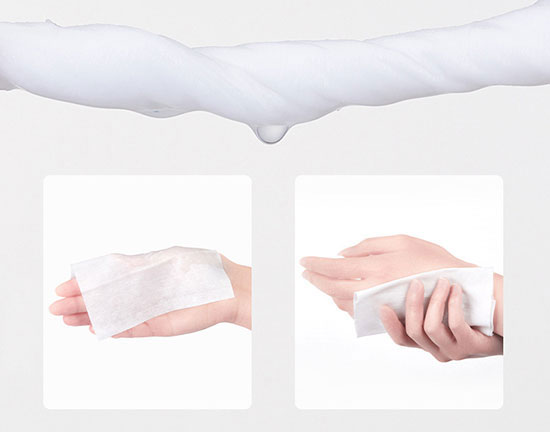+86-18927501869
- All
- Product Name
- Product Keyword
- Product Model
- Product Summary
- Product Description
- Multi Field Search
 English
EnglishViews: 1190 Author: Jack Publish Time: 2024-05-10 Origin: Site
In the wake of COVID-19, maintaining hygiene has become more critical than ever. One of the most effective tools for disinfection is alcohol wipes. But not all wipes are created equal—understanding how to use them correctly can make a significant difference in protecting yourself and others.
1. Origins and Spread: The COVID-19 pandemic has been a global game-changer, originating from a novel coronavirus that spread rapidly across the globe. It all began in late 2019, and within months, it had reached every corner of the world, causing widespread disruption to daily life.
2. Changes in Human Behavior: The pandemic has fundamentally altered our way of life. From the sudden shift to remote working to the necessity of regular hand sanitizing, social distancing, and the ubiquitous use of masks, our daily routines have been reshaped. The emphasis on hygiene and cleanliness has never been greater, and these changes are likely here to stay.
3. New Norms: As we gradually move past the peak of the pandemic, certain preventive measures have become a permanent part of our daily routines. The "new normal" includes continued vigilance in maintaining cleanliness and using disinfecting products like alcohol wipes to protect ourselves and others.

Why Choose Alcohol Cleaning Wipes?
The Disinfecting Power of Alcohol Against Viruses
1. Mechanism of Action: Alcohol, particularly ethanol and isopropanol, acts as a solvent that disrupts the protective outer lipid layer of viruses, thereby deactivating them. For enveloped viruses like the coronavirus, this action is particularly effective. The CDC recommends using products with at least 60% alcohol content for effective disinfection.
2. Efficacy Levels: Studies have shown that alcohol-based wipes are highly effective in killing various germs and viruses. The speed and broad-spectrum efficiency of alcohol make it a preferred choice for disinfection.
3. Speed of Action: Alcohol-based solutions act faster than many other disinfectants, providing almost immediate action upon application. This quick action is crucial in maintaining a clean environment.
4. Broad-spectrum Efficiency: Alcohol is effective against a wide range of microorganisms, not just the coronavirus. This makes alcohol wipes a versatile tool for general disinfection.
1. Convenience: 75 Alcohol wipes are portable and easy to use. They do not require water, making them ideal for on-the-go scenarios, such as travel or public transportation.
2. Residue-Free Cleaning: Unlike some cleaning agents, alcohol evaporates quickly without leaving any residue. This ensures that surfaces are clean and free from potential contaminants or films.
3. Safety: When used as directed, alcohol-based wipes are generally safe for use on the skin and most surfaces. They do not contain harmful chemicals that might be present in other cleaning products.
4. Versatility: Alcohol disinfecting wipes can be used on a wide variety of surfaces, from personal items like phones and glasses to public spaces like doorknobs and elevator buttons.
5. Cost-Effectiveness: Using single-use alcohol wipes can be more economical than purchasing multiple specialized cleaning products.
6. Eco-Friendly Options: Many manufacturers now offer eco-friendly options made of sustainable materials that biodegrade faster, addressing environmental concerns.

Yes! Alcohol wipes are proven to eliminate up to 99.9% of bacteria and viruses, including SARS-CoV-2 (the virus causing COVID-19). The CDC recommends using alcohol-based sanitizers with at least 70% alcohol for optimal disinfection.
Both 70% and 75% alcohol wipes are effective, but 75% alcohol wipes offer slightly better germ-killing power. Here's why:
• 70% alcohol penetrates bacteria and viruses more slowly but ensures longer contact time.
• 75% alcohol strikes a balance between fast evaporation and deep disinfection.
For most uses, either concentration works, but 75% is ideal for high-touch surfaces.
High-Touch Surfaces
• Phones & Electronics (avoid excess liquid to prevent damage)
• Door handles, light switches, and countertops
• Shopping carts and public transit surfaces
Personal Items
Glasses & Sunglasses (A common question: "Can you use alcohol wipes on glasses?" Yes, but avoid coatings like anti-glare.)
• Keys, wallets, and credit cards
• Hand sanitizing when soap isn't available
Medical & First Aid Uses
• Disinfecting small cuts (stings slightly!)
• Cleaning thermometers and medical tools
A common question—here's the answer:
• Yes, but carefully. Alcohol can damage anti-glare or special coatings.
• Better alternative: Use lens-safe disinfecting wipes or mild soap + water.
• If using alcohol wipes, apply lightly and avoid excessive rubbing.

1. Check Product Information: Always read the product label to confirm the alcohol concentration. A minimum of 60% alcohol content is typically recommended for effective disinfection against most pathogens, including the coronavirus.
2. Avoid Dilution: Do not mix or dilute the disinfecting wipes with water or other solutions as this could reduce the alcohol concentration and, subsequently, its effectiveness.
1. Single Use Only: Always use a fresh wipe for different surfaces or tasks to prevent cross-contamination.
2. Wipe Direction: Start from one end of the surface and move to the other, ensuring you cover the entire area.
3. Allow to Air Dry: After wiping, allow the surface to air dry for maximum disinfection. The evaporation of the alcohol is part of the disinfection process.

• Yes! 70%+ alcohol wipes eliminate most bacteria, including E. coli and Staphylococcus.
• Yes—over time, alcohol evaporates, reducing effectiveness. Check expiration dates and store sealed.
• Yes—keep away from open flames and heat sources.
• Most modern phones are safe—but avoid ports and excessive moisture.
In the post-COVID-19 world, the prominence of disinfecting wipes, especially those alcohol-based, has become undeniable in our daily preventive measures. Their ease of use and efficacy offer a straightforward and efficient solution for personal and public hygiene. However, not all disinfecting wipes are created equal. To ensure the highest degree of protection and quality, collaborating with reputable wet wipe manufacturers is crucial. It's these manufacturers that set stringent standards, ensuring the wipes' potency in eradicating viruses and bacteria. As we continue to navigate this ongoing health challenge, choosing and trusting the right disinfecting wipes from trustworthy manufacturers becomes pivotal in safeguarding our health and safety
Sywipe seizes every opportunity to use high-quality resources, including peer-reviewed research, to support the facts in our article. Learn more about our factory and how to keep the content accurate, reliable, and trustworthy.
How to Disinfect Your Phone with Isopropyl Alcohol Wipes Effective?
21 Best Baby Wipes for Sensitive Skin in 2025
How to Choose the Best Natural Baby Wipes for Sensitive Skin?
Why Natural Baby Wipes are Essential for Newborn Skin Care?
Why are 70% Isopropyl Alcohol Wipes Safe for Electronics?
Our Customers Always Come First
Trust is the Foundation of Our Service
sales@clean-wipe.com
sywipe@clean-wipe.com
Room 4611, No. 372 Huanshi East Road, Yuexiu District, Guangzhou,China.
+86-18927501869 / +86-20-81608597
/ +86-18927501869